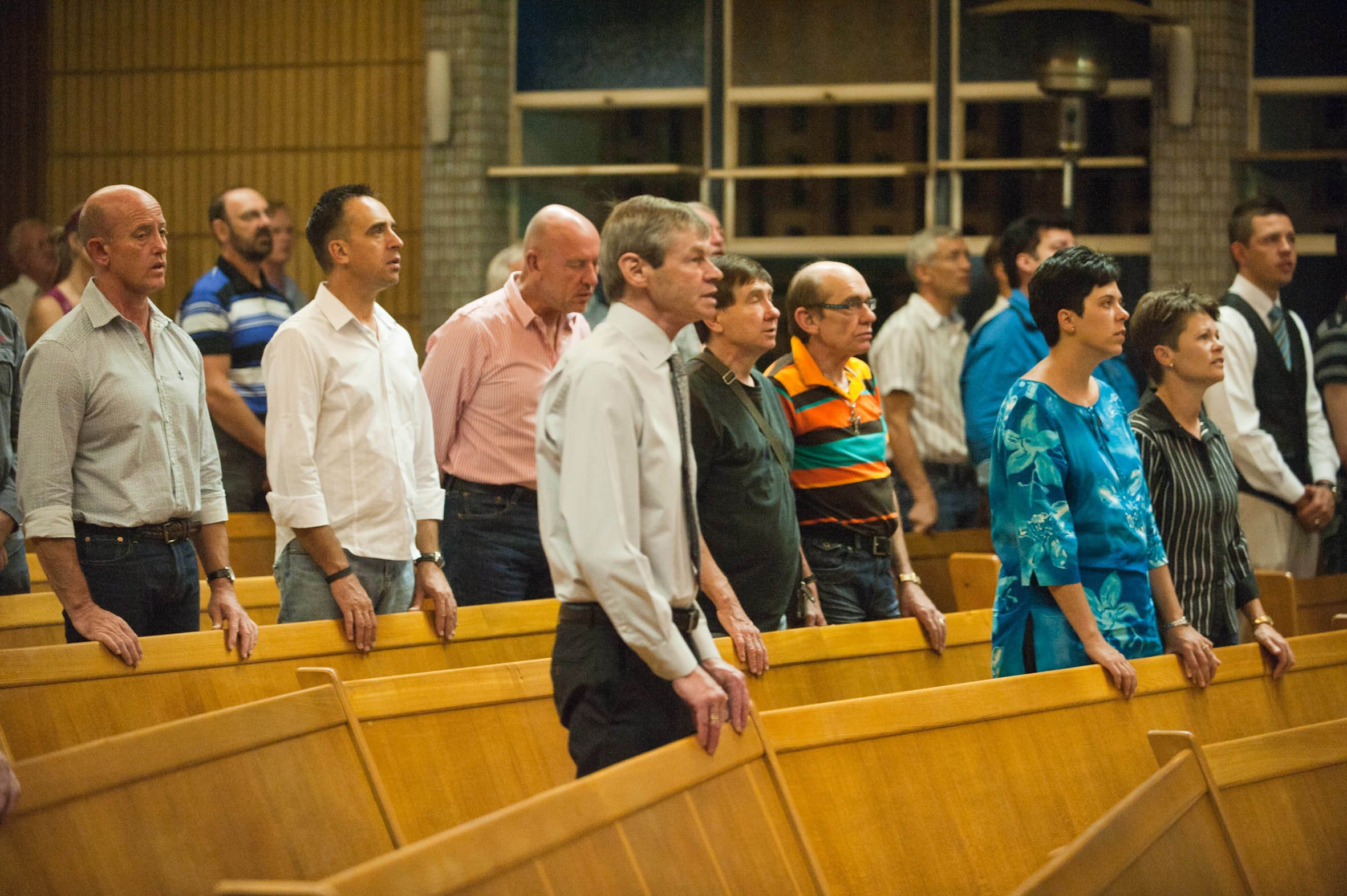Laurie Gaum, a gay activist and Dutch Reformed Church minister, along with three other ministers, has mounted a legal challenge against the churchs 2016 about-face on same-sex relations.
COMMENT
A Goliathan battle is under way inside the Dutch Reformed Church (DRC) to shape the ethics and values on which it imagines its future, and the futures of those in it. It is an existential battle, not only in cutting to the core of the church’s identity, but also because it confronts the existence of those it has historically silenced and shunned, and who are steadfastly refusing those terms for their own faith.
I am referring to the struggle for the rights, dignity and equality of those whose sexualities and genders don’t conform to the hetero-patriarchal social relations on which the church itself was built.
The David in this battle of faith is Laurie Gaum, a gay activist and DRC minister who, along with three other ministers, has mounted a legal challenge against the church’s 2016 about-face on same-sex relations.
In 2015, after years of internal pressure from lesbian, gay and trans people and their allies, and the opening of conversations on experiences of discrimination at the hands of the church, the DRC Synod passed a historic resolution that accepted same-sex relations, recognised civil unions between persons of the same sex, permitted pastors to solemnise these unions if they so chose and allowed “homosexual persons” to fully participate in the church as a covenant community.
It adopted that resolution in the name of “the best application of the biblical message as we understand it at this stage”.
In 2016, however, as a result of the pressures of backlash politics (sex, of course, is always political), the DRC denounced its 2015 resolution by in effect disqualifying any recognition of same-sex relationships or unions, and re-representing these as non-adherent to Christian guidelines.
In the legal case, currently before the high court in Pretoria, Gaum and his co-applicants argue that the 2016 reversal decision is “doubly unconstitutional” in that it breaches both the constitution of the church and that of the country. This is viewed as an infringement of the right to religion itself in that church leaders “have imposed their religious beliefs on others, manifesting their own beliefs in a manner which not only disqualifies the latter from exercising their self-same religious rights — but also simultaneously infringing other constitutionally-entrenched rights, inter alia the rights to equality and dignity”.
The 2016 position has the effect of deciding for all church members, leaders and structures that same-sex relations are unacceptable, whereas the 2015 decision permitted this religious question to be decided on an individual basis, giving effect to what is, as Gaum argues, fundamental to the church order. The consequence is a breach of the very right to religious belief itself.
The applicants state that “the acceptance of the correct constitutional ethos also does not detract from any right which the respondents may seek to assert pursuant to … the right to freedom of association. Recognising the legitimacy of same-sex relations does not excommunicate an adherent to any homophobic theology. On the contrary, it is the censure and sanction, which the 2016 resolution expressly contemplates for same-sex relationships, which preclude and exclude adherents to an anti-homophobic ethos. Not only is this an ethos consistent with the Constitution, it is sourced (so the applicants, and many other church members, strongly believe) in the Bible itself.”
The reality is that the “biblical message” has always been a historically contingent, moving target. Consequently, church culture and practice has changed significantly over time, in particular with regard to the position of women and black people.
A case in point is the DRC’s eventual rejection of the racist ideology of formal apartheid for which it had provided the theological justification. The DRC is now being asked to apply the same logic to other discriminatory ideologies, such as homophobia, which continue to be legitimised through the (mis)use of theology.
Institutionalised religion has always been constituted by a plurality of values and ideas that jostle for primacy within its ranks. Some values and ideas are liberatory while others beget bigotry. In respect of the latter, Gaum’s case comes at a time of mounting pressure against the advancement of queer rights that seeks to set the terms for the future of faith at all levels of church life.
Yet, like other institutions (including the family and the state), hierarchies of inequality linked to race, gender and sexuality, and the violences that maintain these, no longer operate unaccountably.

Recently, a senior leader in the DRC likened homosexuality to paedophilia on Facebook. His position was met with a fervent challenge — a biblical message of sorts — in the form of a public statement by 54 academic theologians and another by 162 ministers of the DRC, both calling for the value of human dignity to be at the centre of the church’s response to sexual and gender diversity.
Taking the long view, these contestations about the content of faith itself are less about doctrine and divinity than they are about the principles and people a future church will stand for and those it will stand against. The moment invites the DRC to steer itself towards the arc of justice and equality and, as the erstwhile church of apartheid, its past history behoves it to do so.
This is all the more pressing in a global present in which hatred and bigotry are being ignited in the name of religion — a present in which it must be asked, as Jennifer Ferguson did in her struggle song Roses: “What men are these, unrighteous ones, causing suffering in Christ’s name?”
Melanie Judge is a queer and feminist activist, and adjunct associate professor at the University of Cape Town. These are her own views.